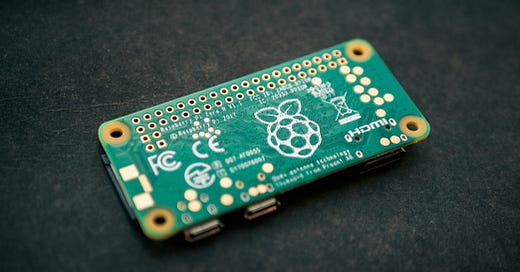The role of Raspberry Pi in building DevOps skills
Meet the next great DevOps teacher, Raspberry Pi!
DevOps has been gaining popularity over the past few years as more organizations seek to create a more efficient and effective software development process. DevOps engineers are responsible for implementing and managing the tools and processes used in the software development process.
Raspberry Pi has a role in helping develop DevOps skills. Let’s look:
Hands-on learning
Raspberry Pi is a small, affordable computer that you can use to learn programming and other technical skills. It’s an excellent platform for hands-on learning, making it an ideal tool for learning DevOps skills. With Raspberry Pi, you can set up your DevOps environment, experiment with different tools and processes, and gain practical experience in DevOps.
One of the advantages of using Raspberry Pi for hands-on learning is that it is relatively inexpensive compared to other hardware platforms. The low cost of Raspberry Pi makes it accessible to a broader range of individuals who are interested in learning DevOps skills. Additionally, Raspberry Pi is easy to set up and use, making it an ideal platform for beginners.
Automation
Automation is a critical aspect of DevOps. It involves using tools and processes to automate different parts of the software development process, such as building, testing, and deployment. Automation helps to reduce errors, save time, and improve the overall efficiency of the software development process.
You can use Raspberry Pi to learn about automation tools such as Ansible, Puppet, and Chef. These tools automate the software development process, making it faster and more efficient. With Raspberry Pi, you can experiment with these tools and learn how to automate different aspects of the software development process.
One of the benefits of Raspberry Pi is that you can use it to create a network of devices that can control and manage remotely, enabling you to experiment with automation techniques that involve multiple devices.
Another benefit of using Raspberry Pi for automation is that it can help you to learn about containerization. Containerization is a technique that involves packaging software code and dependencies into a single container that can be run on any platform. Containerization is becoming increasingly important in the DevOps field, and learning about it can help you to stay ahead of the curve.
Collaboration
DevOps engineers must work closely with software developers, IT operations, and other stakeholders involved in the software development process. Collaboration helps ensure that the software development process runs smoothly, and everyone involved is on the same page.
You can also use Raspberry Pi to learn about collaboration tools like Git and Jenkins. Developers use these tools to manage source code, build and deploy software, and automate testing. With Raspberry Pi, you can learn how to use these tools and collaborate with others on software development projects.
One of the benefits of using Raspberry Pi for collaboration is creating a shared development environment. Building a shared development using Raspberry Pi is a great learning exercise because DevOps depends on such environments, so multiple developers can work on the same project simultaneously, making it easier to collaborate and share code.
Security
Security is an essential aspect of DevOps, and it is becoming increasingly important as more companies move their software development processes to the cloud. You can use Raspberry Pi to learn about security tools and processes such as firewalls, intrusion detection, and encryption.
By learning about security on Raspberry Pi, you can better understand the security risks involved in the software development process. This knowledge can help you to develop more secure software and ensure that your organization’s software development process is secure.
Another benefit of using Raspberry Pi for security is learning about network security. You can use Raspberry Pi to create a network of devices and experiment with different network security tools and techniques. By learning about network security on Raspberry Pi, you can gain practical experience and build the skills needed to secure your organization’s network.
Internet of Things (IoT)
By learning about IoT on Raspberry Pi, you can gain practical experience and build the skills to work with IoT devices in DevOps. Raspberry Pi also lets you experiment with IoT devices and learn about the tools and processes used to manage them. You can even experiment with data collection, analysis, and visualization.
Final thoughts
Raspberry Pi is an excellent tool for learning DevOps skills. It provides a platform for hands-on learning, automation, collaboration, security, and IoT. With Raspberry Pi, you can experiment with different tools and processes, gain practical experience, and build the skills needed to succeed in DevOps.
Photo by Harrison Broadbent on Unsplash



